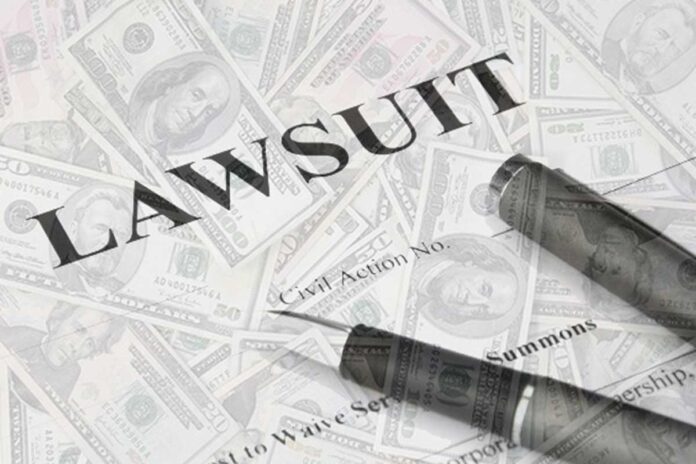Louis D. Lanni Jr. and his husband Michael Connor recently filed suit against Tavern on Camac, alleging negligence and loss of consortium after Lanni allegedly was assaulted by a patron of the bar in 2018. Loss of consortium is defined as “deprivation of the benefits of a family relationship (including affection and sexual relations) due to injuries caused by a tortfeasor.”
Tavern on Camac, an LGBT-oriented bar and restaurant known for its piano singalongs and dance parties, is located at 243 S. Camac St. in the Gayborhood. Lanni, 61, is a former police officer and a former candidate for Philadelphia City Council.
Around one a.m. Sept. 30, 2018, Paige Zubel allegedly assaulted Lanni while they were inside Tavern on Camac. The Philadelphia Police Department released a narrative of the incident as documented on a police report. “While on the 200 block of South Camac Street, at 1:09 a.m., a 23-year-old female victim stated while in a verbal disagreement over politics with a white male 40-50 years of age wearing a white suit jacket, the male became aggressive and scratched the back of her neck with his fingernails while trying to shove her away,” the report states. “This male [was] not on location upon police arrival and the victim refused medical treatment. No further information.”
No arrests were made relating to the incident, according to court records.
The men’s lawsuit provides a narrative at variance with the police report. “Paige Zubel was visibly intoxicated while on the defendants’ premises, including dropping alcoholic beverages, staggering, swaying, slurred speech, bloodshot eyes and boisterous profane behavior,” the lawsuit alleges.
Nevertheless, bartenders continued to serve Zubel alcohol. “Despite her visible intoxication, defendant Paige Zubel was served numerous, voluminous additional intoxicating beverages,” the lawsuit states.
Without provocation, and in the presence of bar personnel, Zubel allegedly assaulted Lanni by “profanely screaming at him, hitting him in the chest and shoulder, kicking him in the left knee and throwing drinks at him,” the lawsuit asserts.
Due to the alleged assault, Lanni suffered damage to his left knee, resulting in an instability that caused him to fall and injure his face, requiring sutures. Additionally, Lanni sustained a tooth fracture and injuries to his left shoulder and left hip. Moreover, he sustained a torn rotator cuff that required arthroscopic repair with permanent postoperative scarring, according to the lawsuit.
The lawsuit, filed in Philadelphia Common Pleas Court, charges the bar and Zubel with negligence and loss of consortium. “Plaintiff Michael Connor has been damaged in that he has been — and will continue to be — deprived of the aid, comfort, companionship, services and consortium of his husband,” the lawsuit states.
The couple seeks more than $50,000 in damages, according to the lawsuit. The couple’s attorney, Stephen W. Bruccoleri, declined to comment. Zubel couldn’t be reached for comment.
John D. Lemonick, an attorney for Tavern on Camac, said the establishment wasn’t liable for any wrongdoing. “We categorically deny the allegations,” Lemonick told PGN. “We’re investigating the matter. I have no further comment at this time.”
Megan C. Kiefer, an attorney who’s filed numerous loss of consortium claims, told PGN that Obergefell — the Supreme Court decision establishing marriage equality — made it possible for same-sex spouses to pursue loss of consortium claims.
“The Obergefell decision did not change the loss of consortium laws in each state, of course, but instead prevented states from excluding same-sex couples from becoming ‘spouses’ under state law,” Kiefer said, in an email. “By mandating that same-sex couples had a right to marry, the Supreme Court indirectly prohibited them from being excluded from bringing a loss of consortium claim by allowing them to become a ‘spouse.’”
Kiefer alluded to the uncertain protections offered by Obergefell. “As the ultimate protections of Obergefell are being called into question as the Supreme Court’s makeup has shifted, there is certainly a question as to what effect that will have on the rights of same-sex couples to file loss of consortium claims,” she said. “If Obergefell is reversed — or its protections are curtailed — the real implications of this is not that gay marriage will be illegal, but only that it is not considered to be Constitutionally mandated. In other words, it will be up to the states to decide whether to allow gay marriage and then whether to recognize gay marriages from other states.”Kiefer concluded by asserting “for states that do not recognize gay marriage, an overturning of Obergefell would be fatal to the right to bring a loss of consortium claim [in those states]. The only ‘solution’ to preserving loss of consortium claims for same-sex couples (absent, of course, a federal constitutional amendment) would be through state legislation. States that allow same-sex marriage should amend their loss of consortium laws to include same-sex domestic partnerships — to extend protections to out-of-state litigants who were unable to get married in their state. Similarly, states that disallow same-sex marriage could adopt legislation extending the right to file a loss of consortium claim to same-sex domestic partners or to same-sex marriages from different states. While the former seems likely [since] those states have already expressed their desire to protect LGBTQ individuals, the latter legislation seems unlikely to happen anytime soon. Indeed, those states have dedicated substantial efforts in stripping away LGBTQ rights. It would certainly be surprising if they mobilized suddenly to protect them.”
